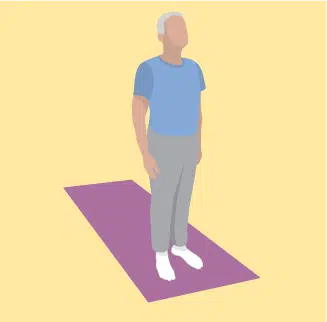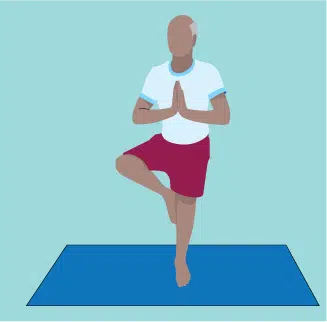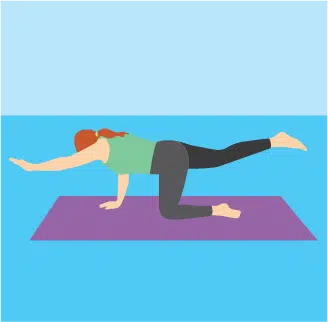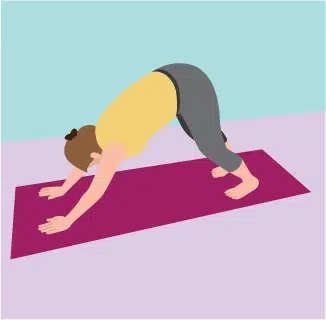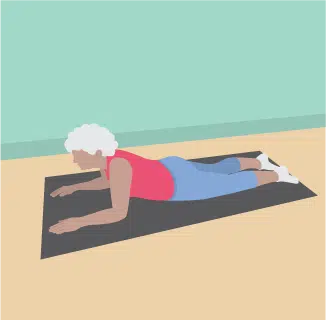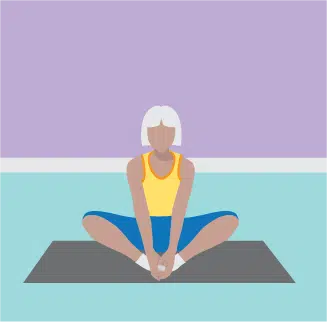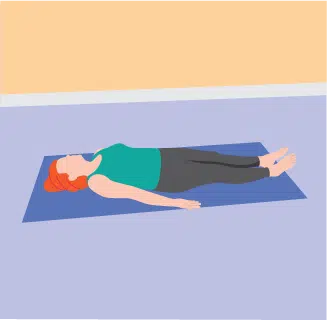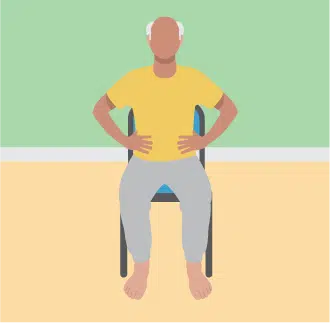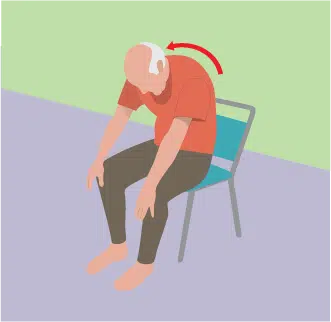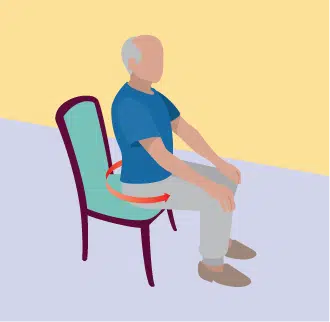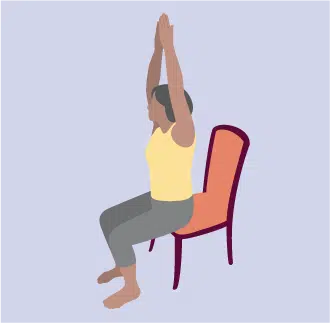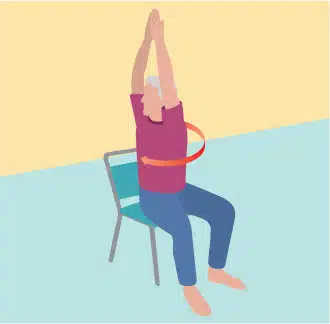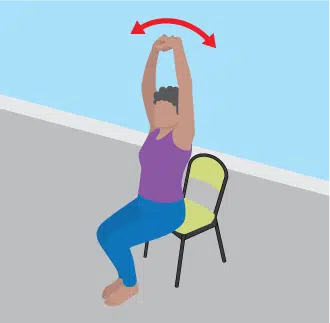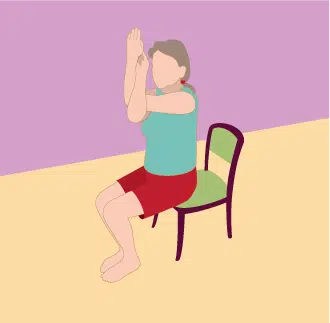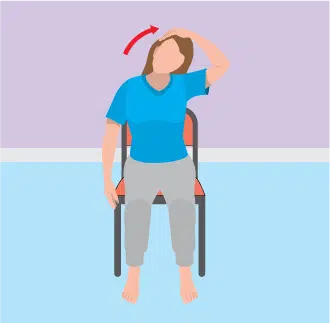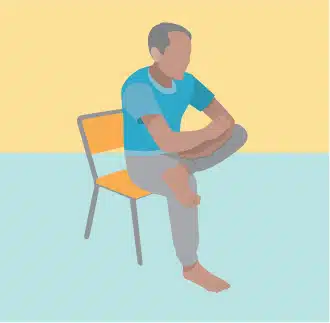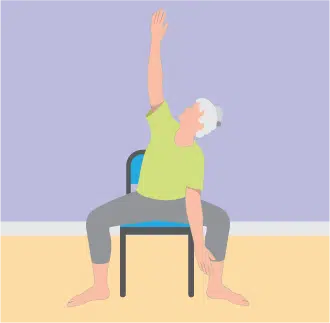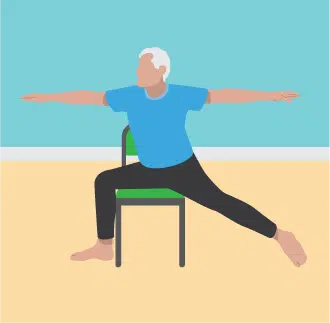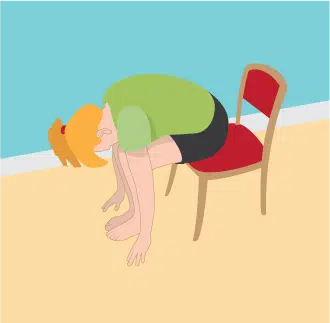The Ultimate Guide to Yoga for Seniors
Top 7 Benefits of Yoga for Seniors
1.) It keeps your mind sharp
Yoga allows you to slow down your breathing and meditate, creating a quiet time for calm reflection that sharpens the mind and improves cognitive function. Giving your mind a break from the frantic pace of everyday life can relieve stress and keep you centered and organized. Many people who practice yoga regularly report an improvement in their mood and memory.
2.) It strengthens bones and joints
As we age, our bones lose density and our joints become stiffer.
Osteoporosis becomes a problem for some people. A gentle yoga practice can be very effective in preventing or slowing down the loss of bone density, relieving bone and joint pain and is safe for people with osteoporosis. Joint stiffness and tenderness can be reduced by moving your joints regularly.
Be sure to tell your instructor about any problems you have with your bones or joints to avoid injury. They can modify your yoga routine and provide helpful props.
3.) It improves your balance and stamina
Yoga’s slow, measured movements and holding poses help you achieve better balance and improves your strength as you age. While you may feel a bit wobbly at first, you’ll find that your ability to perform the poses and keep your balance gradually improves throughout your yoga journey.
4.) It reduces stress
Attending a yoga class is an excellent stress and tension reliever and can even help people reduce the amount of medication they need. Researchers speculate that the postures, meditation and slow, controlled breathing practised in yoga decreases nervous system activity, which helps manage blood pressure levels.
5.) It improves sleeping habits
Many people report that they enjoy a better night’s sleep and reduced insomnia when they start practicing yoga. Performing some simple stretches or breathing exercises before bedtime helps you to focus on the moment instead of worrying about things that happened during the day or that might happen in the future.
6.) It slows down the aging
The two core principles of yoga – strength and relaxation – are the keys to slowing the ageing process. Yoga calms your breathing, which improves your circulation and slows down your heart rate. And it builds your strength, which slows age-related muscle loss. In fact, yoga can even reverse the loss of muscle mass.
7.) It reduces back pain
Practicing yoga is great for working on back strength, flexibility and core stability, correcting posture and breathing – all of which are necessary for a healthy back. It stretches and strengthens your essential back muscles, making it ideal for maintaining back strength and flexibility. Yoga is also one of the more effective tools for helping reduce lower back pain, the most common source of pain and disability among older adults.
IMPORTANT: Yoga’s postures are intended to stretch and strengthen your muscles, not cause you pain. Never push yourself to the point where you are feeling pain. Always let your yoga teacher know if you have any physical problems or are experiencing pain so that he or she can adjust your routine and yoga sequence.
7 Yoga Poses for Seniors
Mountain Pose
This yoga pose helps with balance and grounding through the feet. Stand tall with your big toes touching and heels together. Draw your abdominals in and up and relax your shoulders down and back. Breathe five to eight breaths.
Tree Pose
Excellent for leg and abdominal strength. Good for seniors for balance and concentration. Stand tall and place one foot on the opposite inner thigh, either above or below the knee. Open the leg to the side, bring your hands to a prayer position and hold for five to eight breaths.
Bird Dog
Good for abdominals and back support. The health of the spine is extremely important as we age. Start by kneeling and stretching one arm forward and the opposite leg back. Imagine you have a tea cup on your back and draw your belly button towards your spine. Stay for a breath and then switch sides. Repeat five times.
Downward Facing Dog
This position is great for joint health, flexibility and all-over body strength. Start on your hands and knees, tuck your toes under and lift your hips up and back until your body forms a triangle. Use your core strength and legs to bring the weight back as much as possible. Stay for five to eight breaths, lower yourself down, and repeat two more times. For seniors with wrist issues, try the Forearm Downward Dog instead, putting your forearms flat on the mat.
Sphinx
Excellent for upper back strength and preventing forward head syndrome. Sphinx is gentle and really does a great job of opening up the chest and working the rear deltoids. Lie down on your stomach and place your forearms on the mat, elbows under your shoulders. Press firmly into your arms and draw your shoulder blades together and down your back. Lift your abdominals in and up and stay for five to eight breaths.
Cobbler’s Pose
This is a great way for seniors to keep their hips open and massage their feet. Sit tall and bring the soles of the feet together as you open your knees out to the sides. Fold yourself forward for a deeper stretch but try to prevent rounding too much in the lower back. Hold for five to eight breaths.
Savasana
Savasana resets the nervous system and helps with restoring peace to the body and mind. Lie on your back in final relaxation. It’s good for seniors to get comfortable with letting go more often throughout the day. Lie down and let the floor support you. Completely relax the muscles and breathe as you lie there and take a deep, restorative break.
12 Chair Yoga Poses for Older Adults
Ujjayi Breathing
A great starter pose: Sit up tall at the edge of your seat and place your hands on your waist. Take a deep breath in through the nose, expanding through your sides and abdomen, then exhale slowly. Repeat for ten breaths.
Cat/Cow
This pose helps to relieve back and neck tension. Inhale and arch your back to look up at the ceiling. Exhale through your spine, pulling your abdominals in and rounding your back as you bend forward. Repeat this movement five times.
Circles
To release and relax the hip muscles, circle your hips clockwise five times while seated without moving your upper body, then counterclockwise five times.
Sun Salutation Arms
This pose helps lengthen the spine and releases tension in the shoulders and neck. Sitting tall, breathe in and lift your arms up, pressing your palms overhead. On an exhale, float the arms back down to your sides. Repeat five times.
Sun Salutations with Twists
Repeat the previous exercise, adding a twist as you exhale. Repeat five times on each side, holding the last twist for five seconds.
High Altar Side Leans
For a deep spine and shoulder stretch, lift your arms and interlace your fingers together in front of you. Then turn your palms to the ceiling as you straighten your arms above your head. Lean to the right for three breaths, then to the left for three.
Eagle Arms
Banish any shoulder aches with this move. Stretch your arms out to each side. Next, bring one arm under the other in front of you at shoulder height. While bending your arms at the elbows, twist your arms so that your palms meet each other. Hold for five breaths, then unwind and repeat with the opposite arm on top.
Assisted Neck Stretches
Our necks carry a huge amount of stress. To help alleviate it, take your right arm and drape it over your head until your palm reaches your left ear. Let your head fall to your right shoulder, and hold for five breaths. Repeat on the opposite side.
Ankle to Knee
The hip area is also a major stress spot. To loosen things up, sit up straight, bend your right knee and place your right ankle over your left knee. For a deeper stretch, lean forward. Hold for five breaths, then repeat on the opposite side.
Goddess with a Twist
Another great hip stretch: Open your legs wide and point your toes out. Place your right arm inside your right leg, reaching toward the floor. Lift your left arm toward the ceiling and bring your gaze up to your left palm. Hold for five breaths, then repeat on the opposite side.
Warrior 2
This one builds confidence and gives you a full-body stretch at the same time. Sit tall at the edge of your seat. Bend your right knee to the side and stretch your left leg out behind you as you press down through your outer heel. Hold for five breaths, then repeat on the opposite side.
Forward Fold
Finish with a calming forward bend, which lets blood flow to the brain. First, sit tall and straight. Then, fold down over your legs, letting your head, neck and body hang limp. Hold for as long as you want before rolling back up to a sitting position.
Senior Yoga and Fall Prevention
Due to the natural effects of aging, older adults are at a higher risk for falling than younger people. Each year, one out of every three seniors experiences a fall, and 50% of those have more than one fall. Unfortunately, falls can result in hospitalization and harmful complications such as pressure ulcers, muscle damage and dehydration without prompt medical help. Taking steps to prevent falls should be a priority for all older adults.
Seniors’ Yoga is an excellent way to reduce your risk of falling. Its slow, measured movements, strengthening poses and focused breathing help you improve your balance, flexibility, stability and strength as well as giving you a sense of well-being and enhanced quality of life.
Read our Fall Prevention Guide for more tips and resources to help you prevent falls from occurring.

